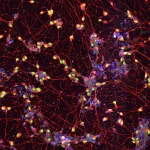(Press-News.org) Five leading cancer research organizations in the United States are jointly announcing the start of patient enrollment in Molecular Analysis for Combination Therapy Choice (ComboMATCH), a unique, precision medicine initiative to test new combinations of cancer drugs guided by tumor biology. The Alliance for Clinical Trials in Oncology, Children's Oncology Group, ECOG-ACRIN Cancer Research Group, NRG Oncology, and SWOG Cancer Research Network plan to conduct many early-phase treatment trials through this platform in collaboration with the National Cancer Institute (NCI) National Clinical Trials Network (NCTN). NCI is part of the National Institutes of Health.
"Through ComboMATCH, the NCTN groups and NCI are taking advantage of translational ideas, pre-clinical investigations, and early clinical experience from a large number of investigators working closely together," said James M. Ford, MD, of the Stanford University School of Medicine. Dr. Ford is a co-leader of ComboMATCH and is leading the coordination effort by the ECOG-ACRIN Cancer Research Group.
Each treatment trial will explore the evidence-based addition of a genomically-targeted agent to another anti-cancer therapy—whether that therapy is a single targeted agent or a standard chemotherapy agent or regimen. The hypothesis is that the combination will produce greater clinical activity than the standard treatment without the added targeted agent.
Some studies will measure the contribution of the additional targeted agent in a randomized cohort. Other studies will be single-arm designs, in cases where there are adequate data on the activity of the component agents individually to assess with confidence the activity of the combination.
Targeted therapy is a type of cancer treatment that targets proteins that control how cancer cells grow, divide, and spread. It is the foundation of precision medicine. As researchers learn more about the DNA changes and proteins that drive cancer, they are better able to design treatments that target these proteins.
Can pre-clinical data from in vivo models of drug combinations in the setting of known tumor genomic variants predict clinical activity in defined patient groups? ComboMATCH aims to find out.
"The central hypothesis of ComboMATCH is that a precision medicine initiative organized around pre-clinical in vivo evidence will efficiently generate clinical studies that are likely to reach their clinical activity endpoints," said Funda Meric-Bernstam, MD, of The University of Texas MD Anderson Cancer Center. Dr. Meric-Bernstam is a co-leader of ComboMATCH.
This hypothesis sets ComboMATCH apart from other early-phase trials evaluating drug combinations, Drs. Meric-Bernstam and Ford explained in a recent publication. As a result, investigators expect ComboMATCH to become a primary vehicle for advancing the field of precision medicine in oncology.
"If successful, we expect the ComboMATCH model to become routinely implemented for early development of molecularly targeted oncology drug combinations in the future," said Dr. Ford. "This structure is also designed to identify beneficial therapies for patients with rare malignancies and/or rare molecular abnormalities in their tumors."
Three ComboMATCH treatment trials are already open for enrollment, with the network groups planning to open several more in the next few months. Overall, investigators expect to enroll about 2,000 patients, but that number could grow.
The combinations to be evaluated in ComboMATCH will include approved drugs and investigational agents that pharmaceutical companies contribute by collaborating under individual Cooperative Research and Development Agreements (CRADAs) with NCI.
Multiple researchers are leading each treatment trial, offering opportunities for both junior and senior investigators to collaborate with translational researchers.
"This is the era of team science and biomarker-directed therapy. The ComboMATCH collaboration is extensive and includes health care providers, clinical and translational researchers, statisticians, patient advocates, and industry partners. It is the great promise to improve patient outcomes that brings these stakeholders together," said Dr. Meric-Bernstam.
Precision medicine refers to the tailoring of treatment based on each person’s individual characteristics. In ComboMATCH, treatment focuses on specific molecular abnormalities known to drive cancer growth in cancerous tumors. The drug combinations show evidence that they may be more effective than single therapy in treating some cancers.
ComboMATCH is for patients with solid tumors that have spread to nearby tissue or lymph nodes (locally advanced) or have spread to other places in the body (advanced or metastatic) and have progressed on at least one line of standard systemic therapy. ComboMATCH is also for patients with a type of advanced cancer for which no standard treatment exists that has been shown to prolong overall survival.
Participants will be assigned to treatment based on laboratory tests that look at the unique genetic material (genes) of tumor cells. Patients with gene abnormalities included in ComboMATCH may benefit from the therapies being studied.
Each treatment trial has its own research goals, patient eligibility criteria, and enrollment timeline.
Statements by the NCTN Trial Group Leaders
“The Alliance for Clinical Trials in Oncology is pleased to participate in this exceptional research effort to advance precision oncology by NCI,” said Geoffrey Shapiro, MD, PhD, of Dana-Farber Cancer Institute, who is leading ComboMATCH efforts for the Alliance. “As part of the initial program, we are excited to activate three ComboMATCH treatment trials. EAY191-A2 will evaluate a combination of the PARP inhibitor olaparib and the PI3K alpha isoform-selective inhibitor alpelisib in patients with BRCA-associated breast cancer. EAY191-A3 will test if co-inhibition of MEK and CDK4/6 by binimetinib and palbociclib, respectively, will provide a novel way to improve outcomes in ovarian, pancreatic, and other cancers with RAS mutations. EAY191-A6 will assess activity of the MEK inhibitor binimetinib in MAPK pathway-mutated biliary tract cancers in combination with chemotherapy in the second line. We are eager to initiate accrual for all the ComboMATCH trials and look forward to advancing these combinations for our patients.”
“The Children’s Oncology Group is excited about the activation of its ComboMATCH treatment trial, EAY191-C1, which will be open to patients with tumors harboring activating MAPK pathway mutations. Our prior experience with the NCI-COG Pediatric MATCH trial2 showed that MAPK pathway mutations are the most common targetable alterations in children with relapsed or refractory solid tumors,” said Douglas S. Hawkins, MD, group chair of the Children’s Oncology Group.
“NRG Oncology recently activated its first two ComboMATCH precision medicine initiative trials and we are engaged in accruing patients to this incredibly important effort. EAY191-N2 will be assessing two drugs for patients with hormone-receptor positive metastatic breast cancer with NF1 mutation and EAY191-N4 will be testing two drugs for recurrent or persistent ovarian and endometrial cancers with a RAS pathway mutation,” said Roisin O’Cearbhaill, MD, the NRG Oncology scientific representative. “We also are eager to open three more ComboMATCH trials later this year.”
“The SWOG Cancer Research Network has launched the first of its ComboMATCH treatment trials, EAY191-S3, to test whether adding targeted therapy with ipatasertib to standard chemotherapy improves outcomes for patients whose solid tumors have a mutation in an AKT gene. The study enrolls patients with advanced or metastatic non-breast tumors,” said Charles D. Blanke, MD, group chair of the SWOG Cancer Research Network. “SWOG also looks forward to testing other targeted therapy combinations within the NCI’s ComboMATCH platform in the coming months and years.”
____________________________________
1 Meric-Bernstam F, Ford JM, O’Dwyer PJ, et al on behalf of the ComboMATCH study team. National Cancer Institute Combination Therapy Platform Trial with Molecular Analysis for Therapy Choice (ComboMATCH). Clin Cancer Res. 14 April 2023; 29 (8): 1412–1422.
2 Parsons DW, Janeway KA, Patton DR, et al. Actionable tumor alterations and treatment protocol enrollment of 1000 pediatric and young adult patients with refractory cancers in the NCI-COG Pediatric MATCH Trial. J Clin Oncol. 2022; 40:2224-2234.
END
ComboMATCH investigators are translating robust pre-clinical evidence for new anti-cancer drug combinations into a series of early-phase clinical trials
Through a joint project and on common ground, a large number of investigators from US trial groups and the National Cancer Institute reached consensus on issues regarding the strength of pre-clinical data and study designs via extensive interactions
2023-06-01
ELSE PRESS RELEASES FROM THIS DATE:
Parkinson’s disease drug ropinirole safely slowed the progression of ALS for over 6 months in a clinical trial
2023-06-01
Amyotrophic lateral sclerosis (ALS), also known as Lou Gehrig’s disease, is a fatal motor neuron disease that causes people to gradually lose control of their muscles. There is no cure, and current treatments focus on reducing symptoms and providing supportive care. Reporting June 1 in the journal Cell Stem Cell, researchers from Japan show in an early clinical trial that the Parkinson’s disease drug ropinirole is safe to use in ALS patients and delayed disease progression by 27.9 weeks on average.
Some patients were more responsive to ropinirole treatment than others, and the researchers ...
The 'breath' between atoms — a new building block for quantum technology
2023-06-01
University of Washington researchers have discovered they can detect atomic "breathing," or the mechanical vibration between two layers of atoms, by observing the type of light those atoms emitted when stimulated by a laser. The sound of this atomic "breath" could help researchers encode and transmit quantum information.
The researchers also developed a device that could serve as a new type of building block for quantum technologies, which are widely anticipated to have many future applications in fields such as computing, ...
CHOP researchers use “deep sequencing” to identify several previously undescribed genetic variants in vascular anomalies
2023-06-01
Philadelphia, June 1, 2023 – Researchers from Children’s Hospital of Philadelphia (CHOP) recently discovered that extremely thorough “deep sequencing” of the genome in tissue samples and cell-free DNA of patients with potentially life-threatening vascular anomalies captured several genetic variants related to disease that were not captured with conventional genetic sequencing methods. More than 60% of patients saw an improvement in their condition after being placed on targeted therapies related to these newly found genetic variants. The findings were published today in the journal Nature Medicine.
Vascular ...
Quantifying mangroves’ value as a climate solution and economic engine
2023-06-01
A tiny Central American country is charting a path to slowing climate change, while boosting the economy and making communities safer. A new Stanford-led study quantifies the value of Belize’s coastal mangrove forests in terms of how much carbon they can hold, the value they can add to tourism and fisheries, and the protection they can provide against coastal storms and other risks. Importantly, the findings, published June 1 in Nature Ecology and Evolution, have already provided a basis for Belize’s commitment to protect or restore additional mangrove forests totaling an area about the size ...
Smart thermometer–based participatory surveillance to discern the role of children in household viral transmission during pandemic
2023-06-01
About The Study: In this study using smart thermometers to measure within-household transmission at a national scale, researchers discerned an important role for children in the spread of viral infection within households during the COVID-19 pandemic, heightened when schools were in session, supporting a role for school attendance in COVID-19 spread.
Authors: Kenneth D. Mandl, M.D., M.P.H., of Boston Children’s Hospital, is the corresponding author.
To access the embargoed study: Visit our For The Media website at this link https://media.jamanetwork.com/
(doi:10.1001/jamanetworkopen.2023.16190)
Editor’s ...
Global, race-neutral reference equations and pulmonary function test interpretation
2023-06-01
About The Study: The use of race-neutral reference equations to interpret pulmonary function tests resulted in a significant increase in the number of Black individuals with respiratory impairments along with a significant increase in the severity of the identified impairments. More work is needed to quantify the effect these reference equations would have on diagnosis, referral, and treatment patterns.
Authors: Alexander T. Moffett, M.D., of the University of Pennsylvania in Philadelphia, is the corresponding author.
To access the embargoed study: Visit our For The Media website ...
Efficacy, safety of atropine for the treatment of pediatric nearsightedness progression over 3 years
2023-06-01
About The Study: The efficacy and safety observed in this randomized clinical trial suggest that low-dose atropine may provide a treatment option for childhood myopia progression.
Authors: Karla Zadnik, O.D., Ph.D., of the Ohio State University College of Optometry in Columbus, is the corresponding author.
To access the embargoed study: Visit our For The Media website at this link https://media.jamanetwork.com/
(doi:10.1001/jamaophthalmol.2023.2097)
Editor’s Note: Please see the article for additional information, including other authors, author contributions and affiliations, conflict of interest and financial ...
Personalizing prostate cancer screening may improve the accuracy of detection
2023-06-01
The accuracy of prostate-specific antigen (PSA) screening for prostate cancer can be improved by accounting for genetic factors that cause changes in PSA levels that are not associated with cancer, according to a multi-center study led by UC San Francisco and Stanford University.
In a study publishing June 1, 2023 in Nature Medicine, UCSF researchers and their collaborators conducted a large genome-wide association study of PSA in more than 95,000 men without diagnosed prostate cancer, which identified over 80 novel PSA-associated variants. They set ...
NIH’s ComboMATCH initiative will test new drug combinations guided by tumor biology
2023-06-01
The National Cancer Institute (NCI) has launched a large precision medicine cancer initiative to test the effectiveness of treating adults and children with new drug combinations that target specific tumor alterations. Known as the Combination Therapy Platform Trial with Molecular Analysis for Therapy Choice (ComboMATCH), the initiative is the largest of its kind to test combinations of cancer drugs guided by tumor biology. The endeavor aims to identify promising treatments that can advance to larger, more definitive clinical ...
High-resolution images reveal workings of a bacterial RNA riboswitch, a promising new target for antibiotics
2023-06-01
Image
To prevent a global health crisis, scientists around the world are searching for ways to fight bacteria that can evade the current arsenal of antibiotics.
A promising target for new and improved antibiotics are riboswitches, small stretches of RNA that regulate a process necessary for the production of proteins by the bacterial cell. Riboswitches are found almost exclusively in bacteria and could be targeted with antibiotics so that animals or humans are unaffected. With a full understanding of how riboswitches work, researchers may be able to develop drugs that disrupt the cellular machinery ...
LAST 30 PRESS RELEASES:
Call me invasive: New evidence confirms the status of the giant Asian mantis in Europe
Scientists discover a key mechanism regulating how oxytocin is released in the mouse brain
Public and patient involvement in research is a balancing act of power
Scientists discover “bacterial constipation,” a new disease caused by gut-drying bacteria
DGIST identifies “magic blueprint” for converting carbon dioxide into resources through atom-level catalyst design
COVID-19 vaccination during pregnancy may help prevent preeclampsia
Menopausal hormone therapy not linked to increased risk of death
Chronic shortage of family doctors in England, reveals BMJ analysis
Booster jabs reduce the risks of COVID-19 deaths, study finds
Screening increases survival rate for stage IV breast cancer by 60%
ACC announces inaugural fellow for the Thad and Gerry Waites Rural Cardiovascular Research Fellowship
University of Oklahoma researchers develop durable hybrid materials for faster radiation detection
Medicaid disenrollment spikes at age 19, study finds
Turning agricultural waste into advanced materials: Review highlights how torrefaction could power a sustainable carbon future
New study warns emerging pollutants in livestock and aquaculture waste may threaten ecosystems and public health
Integrated rice–aquatic farming systems may hold the key to smarter nitrogen use and lower agricultural emissions
Hope for global banana farming in genetic discovery
Mirror image pheromones help beetles swipe right
Prenatal lead exposure related to worse cognitive function in adults
Research alert: Understanding substance use across the full spectrum of sexual identity
Pekingese, Shih Tzu and Staffordshire Bull Terrier among twelve dog breeds at risk of serious breathing condition
Selected dog breeds with most breathing trouble identified in new study
Interplay of class and gender may influence social judgments differently between cultures
Pollen counts can be predicted by machine learning models using meteorological data with more than 80% accuracy even a week ahead, for both grass and birch tree pollen, which could be key in effective
Rewriting our understanding of early hominin dispersal to Eurasia
Rising simultaneous wildfire risk compromises international firefighting efforts
Honey bee "dance floors" can be accurately located with a new method, mapping where in the hive forager bees perform waggle dances to signal the location of pollen and nectar for their nestmates
Exercise and nutritional drinks can reduce the need for care in dementia
Michelson Medical Research Foundation awards $750,000 to rising immunology leaders
SfN announces Early Career Policy Ambassadors Class of 2026
[Press-News.org] ComboMATCH investigators are translating robust pre-clinical evidence for new anti-cancer drug combinations into a series of early-phase clinical trialsThrough a joint project and on common ground, a large number of investigators from US trial groups and the National Cancer Institute reached consensus on issues regarding the strength of pre-clinical data and study designs via extensive interactions


